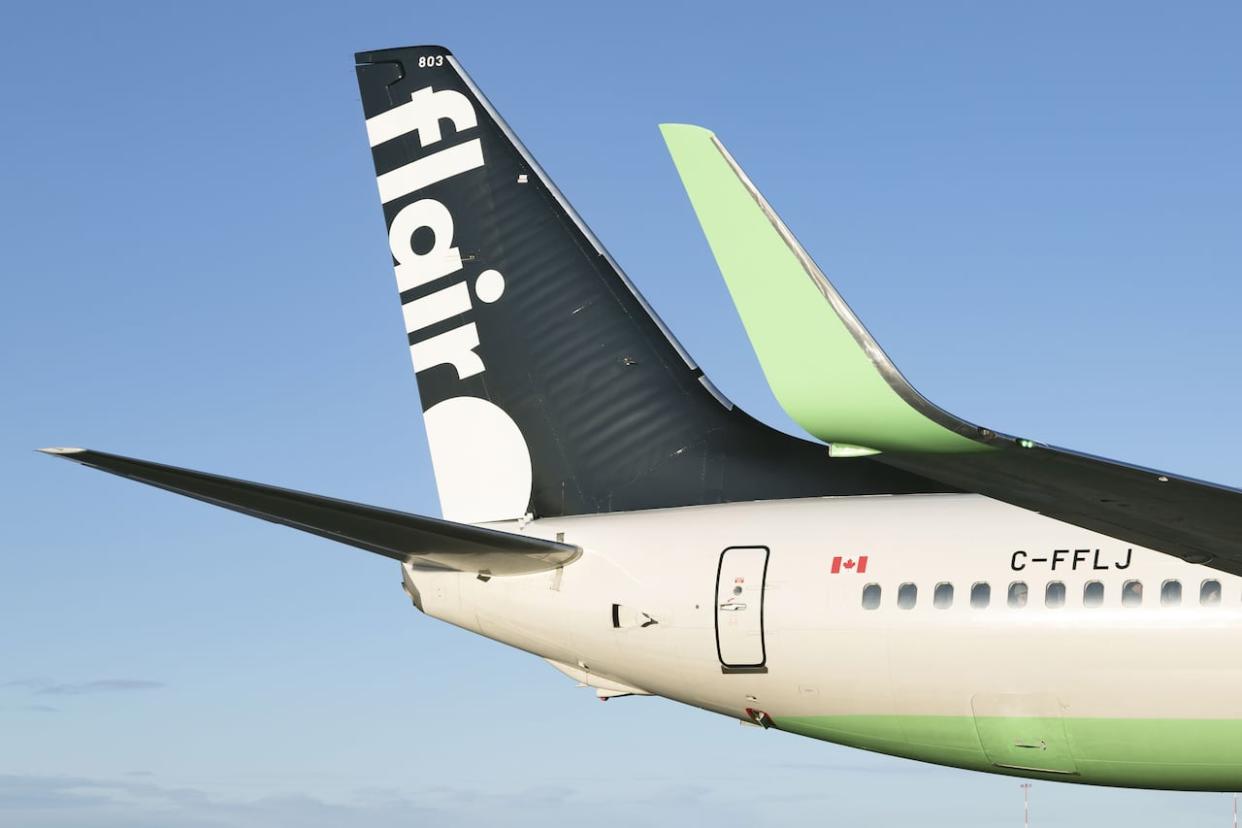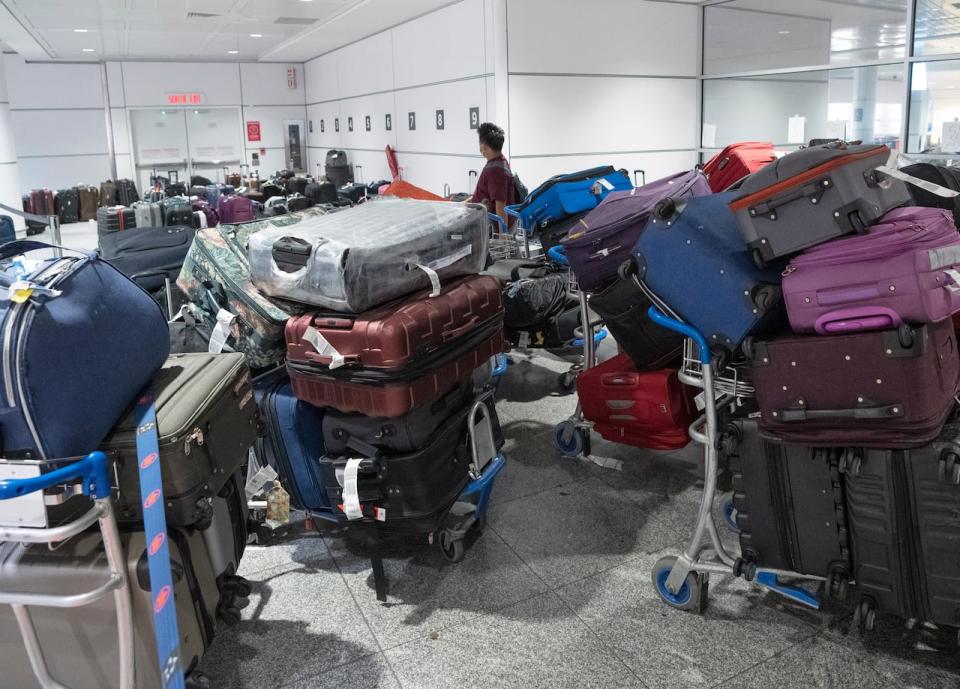Airline on the hook for spoiled seafood, small-claims court says

A B.C. small-claims court says ultra-low-cost carrier Flair Airlines has to shell out nearly $800 to compensate a passenger for a bag full of fish products that went rotten during the five days his luggage was delayed.
Brian Vu packed a suitcase full of crab meat, fish cakes, sea cucumbers and dandelion root in defiance of a plane ticket warning passengers not to put perishable items in checked luggage.
But in a decision released this week, a member of B.C.'s Civil Resolution Tribunal said it wasn't the contents of the bag that mattered as much as the fact a Flair employee agreed to check the luggage in the first place.
"I agree with Mr. Vu," wrote Peter Mennie.
"The Canadian Transportation Agency has repeatedly held that if an airline accepts checked baggage then the airline assumes liability for the baggage even if the airline has not agreed to transport certain items."
Crab meat, fish cakes, sea cucumbers, dandelion root
According to the ruling, Vu flew from B.C. to Ontario in November 2022 — paying $72.45 to pack each of his two bags.
One showed up on the other end of his voyage, but the other went missing for five days.

Unclaimed luggage sits at Toronto's Pearson airport in 2022. Many airlines include warnings about packing perishable goods. But a B.C. small claims court says carriers are responsible for the contents of bags they check onto planes. (Ryan Remiorz/The Canadian Press)
"Mr. Vu packed crab meat, fish cakes, sea cucumbers and dandelion root in his checked bag," Mennie wrote.
"He says these items spoiled while the bag was delayed. Mr. Vu estimates that he paid $250 for the crab meat, $120 for the fish cakes, $80 for the sea cucumbers, and $72 for the dandelion root."
The evidence in the case included a video which Vu claimed depicted the spoiled items in his bag — but Mennie said he wasn't able to open the file.
Regardless, there seemed to be no dispute that the products were actually spoiled.
Flair argued that its contract with passengers specifically prohibits perishable items in checked bags — warning that the airline "is not liable for any spoilage of perishable items."
"Flair says passengers must declare they are not carrying restricted items during the check-in process," Mennie wrote.
"Flair also provided a screenshot of its website which says that perishable items must not be included in checked bags."
But Vu argued that regulations upheld by the Canadian Transportation Agency and federal law entitled him to compensation for checked bags lost for less than 21 days.
Mennie agreed, finding that the law doesn't allow an airline to use a contract to get out of liability for bags frontline staff agree to put on an airplane — no matter how fishy the contents.
'They were emitting odours'
Mennie's decision adds to a body of precedent built at the expense of ruined goods.
In 2005, a Quebec court refused to compensate a traveller for more than $4,381 after Continental Airlines said it was forced to destroy suitcases containing raw meat and vegetables "because they were emitting odours and various liquids were leaking out."
But in that case the judge found the traveller had made his claim outside of a four-month window designed to make sure complaints are made as quickly as possible.
Other cases have involved shipments of polio vaccine that were ruined by flight delays and the failure of airlines to properly refrigerate them.
Flair has to pay Vu a total of $780.22 — including roughly $600 for baggage fees and spoiled items and the $150 it cost him to file the lawsuit.


